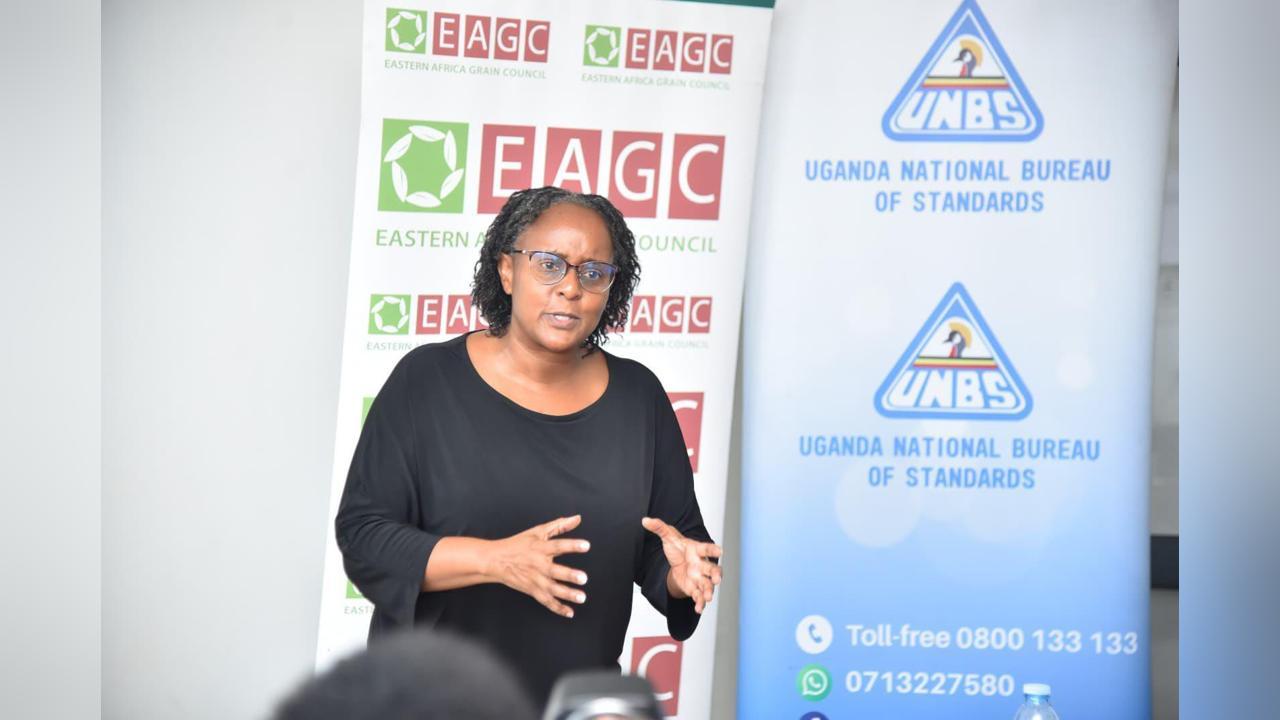Africa-Press – Uganda. Uganda is taking decisive steps to overhaul its grain export system by introducing stringent quality controls aimed at curbing trade losses and restoring its credibility in regional markets.
Beginning in the first quarter of the 2025/2026 financial year, all grain exports particularly maize must carry the Uganda National Bureau of Standards (UNBS) Quality Mark (Q-Mark) and a Sanitary and Phytosanitary (SPS) permit or risk being barred from export.
The new enforcement policy, spearheaded by the Ministry of Agriculture’s Crop Inspection Department and implemented through UNBS, comes in response to years of rejections from key trading partners like Kenya, Rwanda, and South Sudan.
These rejections have often stemmed from poor post-harvest handling and high levels of aflatoxin contamination in Ugandan maize.
“There will be no grain allowed out of Uganda without the Q-Mark and SPS permit,” declared Patricia Bageine Ejalu, UNBS Deputy Executive Director, during a national training session for farmers and grain processors at the UNBS headquarters in Bweyogerere.
“Buyers will now be required to source only from certified premises.”
The move, she added, is intended to “permanently close the quality gap” that has long hampered Uganda’s grain exports and to ensure that producers meet minimum hygiene and safety standards.
In 2021, Kenya temporarily banned Ugandan maize imports due to dangerous aflatoxin levels an incident that laid bare the country’s grain handling deficiencies and dealt a blow to regional trade relations.
Uganda’s grain exports were widely criticized for lacking consistency in quality, exposing farmers to trade shocks and revenue loss.
Ejalu also lamented the ongoing export of poorly processed maize, which she said undermines local value addition.
“Uganda is effectively donating raw materials to neighbours who process and resell them at higher prices. We must take control of our grain value chain,” she said.
She pointed out that many milling operations in Uganda fail basic hygiene inspections.
“We’ve seen maize being processed in facilities that haven’t been cleaned for years dust from roofs, dirt on the floors, pests in the stores. Often, it’s not resistance but a lack of awareness about the required standards.”
According to Paul Ochuna, Country Program Manager at the Eastern Africa Grain Council (EAGC), Uganda loses up to 40% of its grain harvest each year due to poor post-harvest handling practices.
“Drying, sorting, and storage remain key challenges. That’s why we’re working with farmer cooperatives to improve quality at the grassroots introducing quality seeds and post-harvest technologies,” he said.
To support the rollout of the new regulations, UNBS and the Ministry of Agriculture have begun training and deploying inspectors to grain-producing regions across the country.
The nationwide certification drive is part of a broader national strategy to improve agricultural competitiveness, expand regional market access, and protect farmers from future export disruptions.
“We’ve consulted widely and will continue engaging stakeholders to ensure the policy’s smooth implementation,” said Ejalu.
“The days of exporting substandard grain are coming to an end.”
With the East African region facing growing food insecurity, Uganda’s grain sector holds vast potential.
But experts agree that potential will only be realized if the country enforces quality control across the entire value chain from farm to border.
For More News And Analysis About Uganda Follow Africa-Press






